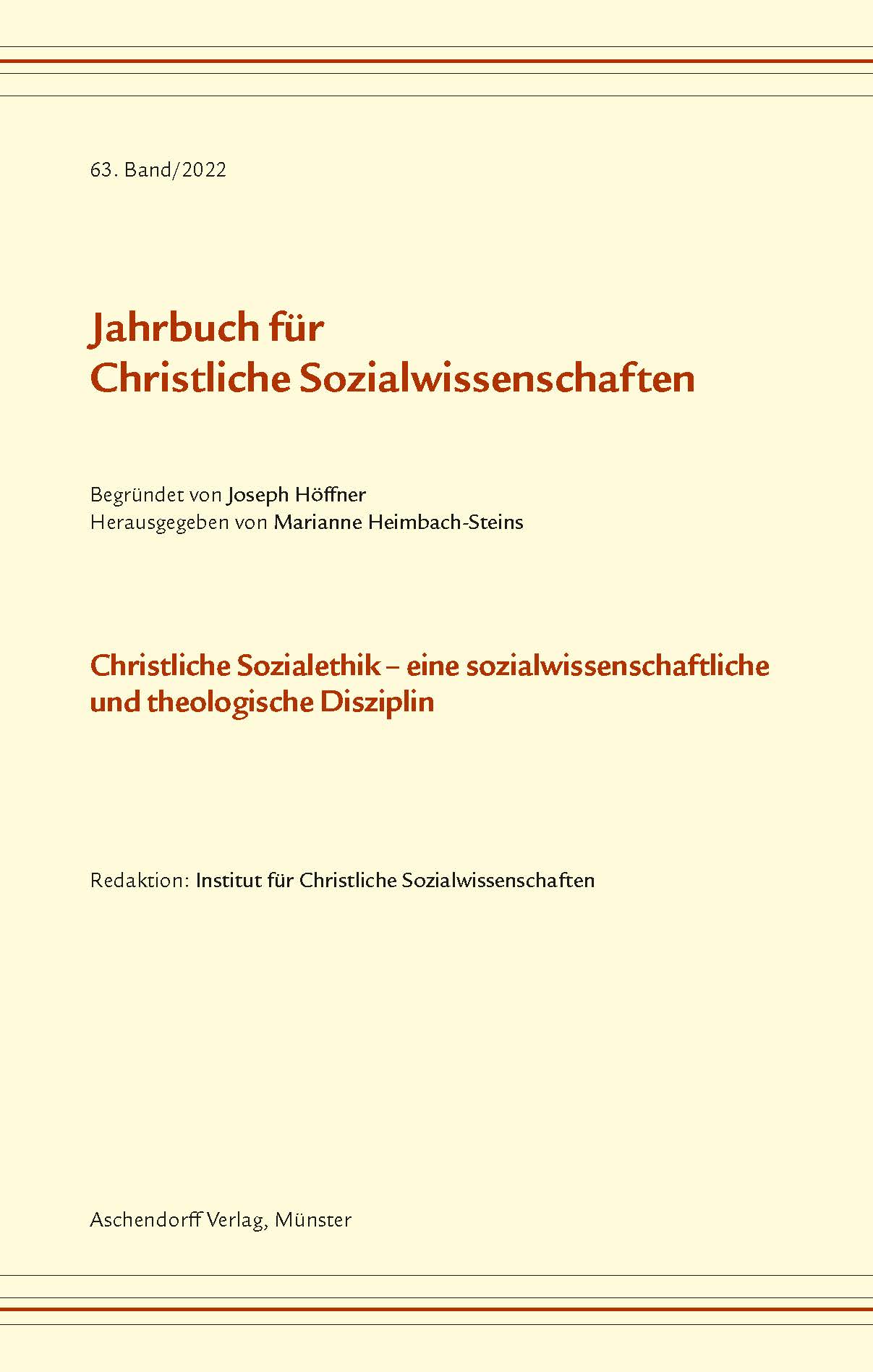Der franziskanische Ansatz zur Wirtschaftsethik: Eine neue sozio-ökonomische Ordnung aus dem Geist der Armutsbewegung
DOI:
https://doi.org/10.17879/jcsw-2022-4414Abstract
The essay addresses the Franciscan approach to business ethics in the late Middle Ages when Franciscan theologians contributed to the economic discourse. Living in a society characterized by commercial revolution and increasing international financial activity based on the theological understanding of poverty and a profound knowledge of economic mechanisms, they legitimized the moral dimension of the market and the social function of merchants. They justified a particular use of money that was to be directed towards productivity and towards serving the society. However, the primary interest of Franciscan theologians was not the analysis of economic laws but the moral implications of economic activity, putting economic issues in a normative, social, and religious context. The interdisciplinary structure of Franciscan approach to economic issues can support today’s discourse on the theoretical and normative foundations of business ethics. Referring back to the Franciscan tradition is not premodern but one can rather learn from it that in times of globalization, even functionally differentiated societies should be subjected to normative criteria, that economic processes and the shaping of a humane economic and social order should be oriented towards social goals, and that the freedom of the individual depends on the solidarity of all people in a socially just society.

